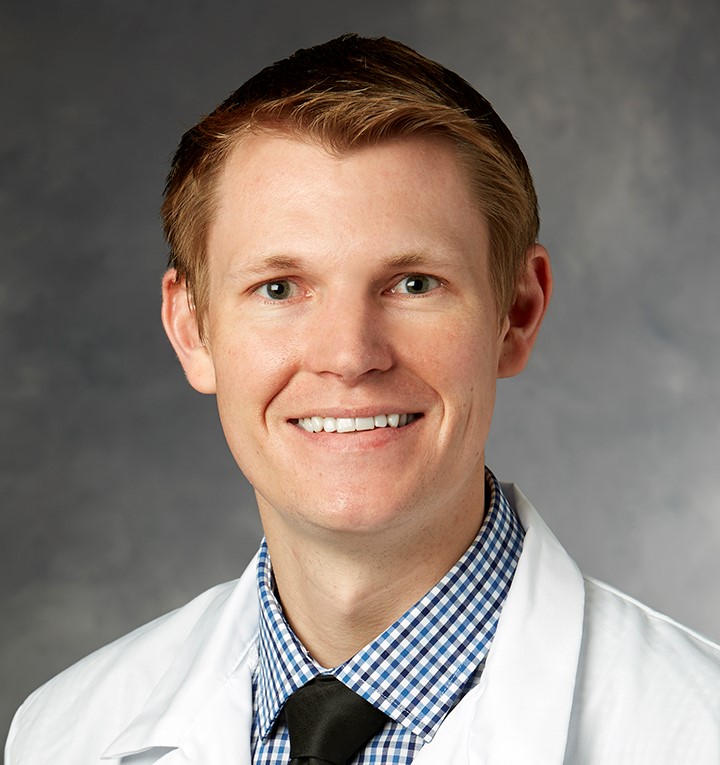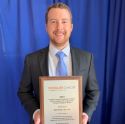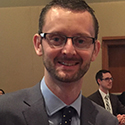In partnership with the Conquer Cancer Foundation of ASCO Young Investigator Award program, we fund promising young researchers in the field of lung cancer. Through this grant we encourage the best and brightest to choose lung cancer as their field of study.
Meet our Young Investigators!

2020: Everett Moding, MD, PhD
Circulating Tumor DNA Analysis
“Identification of chemoradiation response mediators in non-small cell lung cancer via circulating tumor DNA analysis.”
Dr. Moding is a radiation oncologist at Stanford University. His research studies why some patients respond better to radiation treatment than others. This grant will allow Dr. Moding to use circulating tumor DNA analysis to identify new mediators of sensitivity and resistance in patients with non-small cell lung cancer treated with chemoradiation, with the hope of identifying patients who could benefit from decreased radiation doses to reduce toxicity while maintaining treatment efficacy. Click here to learn more about Dr. Moding’s work.

2019: Neil Pfister, MD, PhD
Small Cell Lung Cancer
“Understanding and Exploiting EZH2 in Small Cell Lung Cancer.”
Dr. Pfister is a radiation oncology resident at Winship Cancer Institute of Emory University in Atlanta, GA. His research studies DNA damage repair pathways in small cell lung cancer. This grant will allow Dr. Pfister to study pathways that cause resistance to the standard chemotherapy treatments for small cell lung cancer, with the hope of developing new therapeutic options.

2018: Carl M. Gay, MD, PhD
Small Cell Lung Cancer
Carl M. Gay, MD, PhD is a clinical fellow in medical oncology at the University of Texas M.D. Anderson Cancer Center in Houston, TX. Dr. Gay’s research efforts are focused on whether inhibiting DNA repair mechanisms in small cell lung cancer can either lead to cancer death or increase the ability for immunotherapies to work better to fight the cancer. The grant will enable Dr. Gay to conduct research on a type of cancer that accounts for approximately 15 percent of all lung cancers worldwide, but does not yet have a pipeline of successful treatments to improve outcomes for patients who are diagnosed.

2017: Robert Smyth, MB, MSc
Targeted Therapies
Robert Smyth, MB, MSc is specializing in respiratory medicine at the Royal College of Surgeons in Ireland. Dr. Smyth’s research examines whether mutations in tumors can be identified through a patient’s breath – providing a non-invasive, inexpensive, and a more-accessible option to help identify the best treatments for the lung cancer. Early results from his research have shown equivalent, if not better, accuracy in detecting key mutations as compared to current blood-based testing. Moreover, the findings will provide people across the world with more information about their cancer and thus better treatment options. Click here to learn more about Dr. Smyth’s work.
Publications supported by Dr. Smyth’s Young Investigator Award:
Brief report on the detection of the EGFR-T790M mutation in exhaled breath condensate from lung cancer patients.

2016: Dr. Tina Cascone, MD, PhD
Immunotherapy
Tina Cascone, MD, PhD is an instructor in the Department of Thoracic/Head & Neck Medical Oncology at the University of Texas MD Anderson Cancer Center. Dr. Cascone’s research efforts are dedicated to understanding the mechanisms that mediate non-small cell lung cancer (NSCLC) resistance to immunotherapy. Her research goal is to identify novel therapeutic strategies that improve outcomes of patients with early-stage NSCLC. Dr. Cascone’s research supported by the Lung Cancer Alliance targets the nonsense-mediated mRNA decay (NMD) pathway as a means to enhance the ability of lung cancer cells to be recognized and killed by the immune system. Results from her studies show that targeting the NMD complex may effectively shrink lung cancers in mice with an intact immune system, and prolong animal survival. Dr. Cascone and her colleagues have also recently identified tumor glycolysis as a pathway associated with resistance of cancer patients to adoptive T cell therapy which is a type of immunotherapy. This opens the door to better outcomes for immunotherapy-based combinatorial strategies in the future.
Publications supported by Dr. Cascone’s Young Investigator Award:
Induction Cisplatin Docetaxel Followed by Surgery and Erlotinib in Non-Small Cell Lung Cancer
Increased Tumor Glycolysis Characterizes Immune Resistance to Adoptive T Cell Therapy
.
